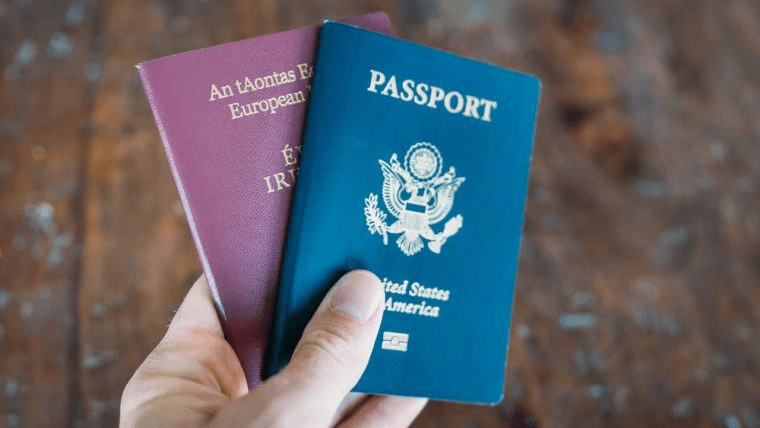Jawar Mohammed, a prominent political activist and media businessman who returned from the United States to Ethiopia, looked at the country’s election earlier this year to challenge his former ally, Premiers Abiy Ahmed. Yet Jawar’s citizenship was instantly unclear simply because he was a US citizen. Ethiopian law does not allow for dual nationality and, while he has written letters saying that he has withdrawn from his US citizenship, instability persists.
Jawar is a situation in which the many African States are gradually faced with a dilemma that has been created by independence for their people to practically ignore the passports of other countries after years of battle with Western imperialism and colonial rule. Over the sixty years since independence across the continent, however, globalisation ‘s powers and transatlantic migration have more frequently seen dual nationality as a question that needs to be dealt with in diplomacy, industry and sports. In 1985, the football companies in Saudi Arabia rejected, after losing to Cameroon in the tournament finals, the prize of the Afro-Asian Cup. We alleged that a legendary star, Roger Milla, has been a non-eligible player who travelled to Jeddah on a French passport, as he also did not hold one from Cameroon.
Cameroon is now considering a revision of its 1968 nationality law. The present law stipulates that every adult Cameroonian who voluntarily acquires a foreign nationality loses its Cameroon nationality immediately. A recent draft law, however – a copy that Quartz Africa has seen which states that “a Cameroonian who has acquired another nationality shall retain Cameroon nationality unless it is expressly relinquished by the concerned.” Many African governments oppose the legalization of dual citizenship and claim that there may be a problem of the loyalty of people with dual citizenship. Yet there are also anecdotal signs that a stronger economically autonomous diaspora, capable of free movement between countries, maybe more worried by some of these governments.
A detailed study revealed by 2010, that there were 21 African countries banning dual citizenship, including DR Congo, Liberia, Algeria and Zimbabwe. In the meantime, in some conditions, 23 others allowed dual citizenship as either gained by marriage to a foreign spouse or granted only by birth to residents. The problem of dual citizenship was not answered in other countries’ rules.
Despite these restrictions, the fact that many countries have no comprehensive inspection systems until they live in the presence of an office is not unusual among middle-class Africans in countries that do not allow dual nationality. In 2017, up to two-thirds of Somalia ‘s election presidential candidates carried foreign passports and up to 100 of its 275 members kept foreign passports as well. Eventually winner Mohamed Farmaajo, now president, also held US citizenship. He had previously worked for the Buffalo, New York State Transport Department.
A large number of African countries today, especially in Europe and North America, have significant diaspora communities, with growing cultural, social and political impact, helped to develop communications and travel networks over the last few decades. The World Bank estimates an approximate 30.6 million African diasporas around the world, but if unregistered African migrants are considered, the number could be much higher. In 2019, the African Diaspora’s cash inflow totalled 48 billion dollars. This sending amounted to 2.6% of GDP in 2010 in the Continent.
The IMF reports that every year outside the continent, African diasporas will save around $53 billion. There is a perception that more money would come to Africa if it were easier to spend in their countries of origin as double citizens. Last year, Ethiopia’s parliament adopted a bill to authorize Ethiopian Diaspora members of the state to invest, buy shareholdings and set up lending companies in the state-dominated financial sector in Ethiopia.
Ghana is one of the African countries rapidly realizing its diaspora ‘s potential and the benefit of giving it the chance to hold dual citizenship. It passed a law already in 2000 acknowledging its residents’ dual nationality. In the Year of Resettlement, Ghana 2019, the government has since made efforts to put its Ghana heritage and the other diaspora of African descent into their homes.
For very practical purposes, many African professionals and entrepreneurs in their own countries and in the diaspora want international passports — they want to be able to travel around the world easily. In average, Africans can only fly to 25% of other African countries without a visa, according to Africa ‘s 2019 Visa Openness Survey.
However, North American and European passport holders can travel free of visa to more African countries than Africans. Henley & Partners, the Lagos offices’ global citizenry and citizenship consultancy firm, said the majority of Nigerians who wish to subscribe to their offers are reluctant to travel around. They want a passport instead, which makes it easier to travel without the visa applications being unpredictable.
The most recently published Henley Passport Index reveals that the index holds the 97th and 98th positions in two African countries, Nigeria and Ethiopia. Nigerian passengers can fly without a visa to only 46 countries mainly in Africa, while Ethiopia has a total of 44.
Data Source: QZ




